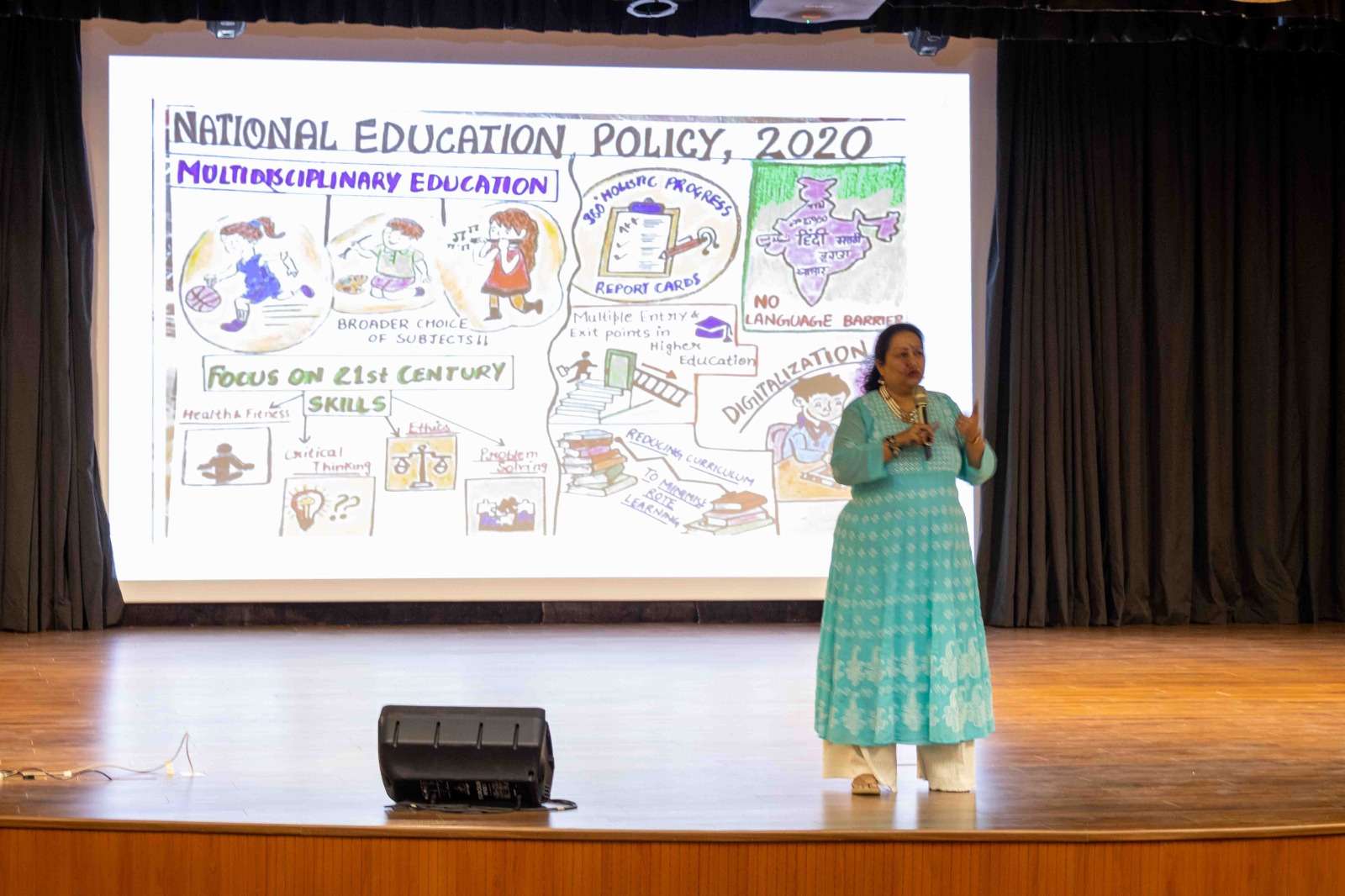“Learning and teaching should not stand on opposite banks and just watch the river flow by; instead, they should embark together on a journey down the water. Through an active, reciprocal exchange, teaching can strengthen learning and how to learn.”
-Loris Malaguzzi
A workshop was organized for the parents for an hour and for teachers of RKKGPS thereafter by Mrs. Kamini Prakash Rege on March 16th, 2024, to discuss the changes in the education system due to the implementation of the new NCF based on NEP.
The 3-hour long detailed workshop aimed to explain the NEP and NCF in a simplified manner, focusing on the major changes in the NEP, such as the shift of curriculum from 10+2 to 5+3+3+4. These four stages are divided into Foundational (Nursery- Grade II), Preparatory (Grade III-V), Middle (Grade VI-VIII), and Secondary (Grade IX-XII).
Mrs. Rege shed light on the initial pressure of rote learning and its limitations. She discussed how early childhood education was previously overlooked, highlighting its integration into the foundational stages under the NEP. Furthermore, Mrs. Rege recommended various educational resources for teachers, such as NIPUN, Vidhya Pravesh, and the Pre-school curriculum, to facilitate effective teaching practices. She stressed the significance of a global perspective and acknowledged the contributions of renowned educationists.
Mrs. Rege explained learning standards, developmental domains, curricular goals, and competencies in depth, urging teachers to go through the NCF resource material. She emphasized the holistic development of children, encompassing physical, emotional, social, intellectual, and creative aspects. Additionally, she provided practical tips for developing foundational literacy and numeracy through engaging activities, such as labeling items in class to expose children to print.
Mrs. Rege encouraged educators to incorporate play-based learning methods, such as conversation, storytelling, toy-based learning, and outdoor activities, to enhance children's learning experiences. She discussed the importance of scaffolding in teaching and differentiated instruction tailored to individual learning styles. Mrs. Rege stressed the need for teachers to provide different types of attention to different learners to increase their proficiency. Assessment criteria were explained to the teachers, and grading of Beginner, Progressing, Proficient, and Advanced were simplified with relevant examples.
Components of the teaching plan, including the 5-step learning process or Panchaadi, were discussed. Mrs. Rege also emphasized the importance of analysing artefacts, documenting, and community assessment to map the progress of the child. Various assessment measures, such as observation, anecdotal records, self-assessment, time & event sampling, were highlighted to assess a child's progress effectively.
In conclusion, the workshop proved to be an eye-opener and helped in better understanding of the NCF. It will serve as a great tool for planning the curriculum and assessment strategies in the coming session.

